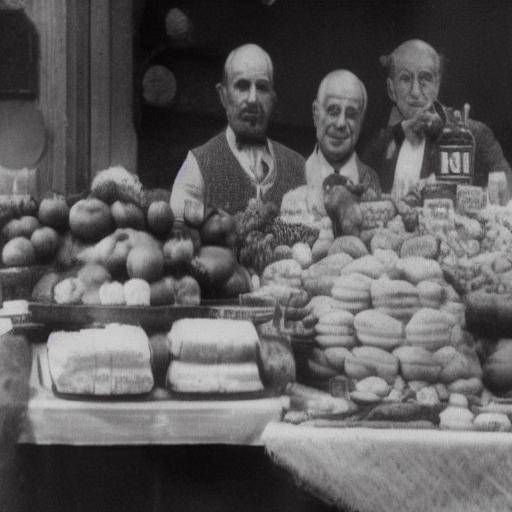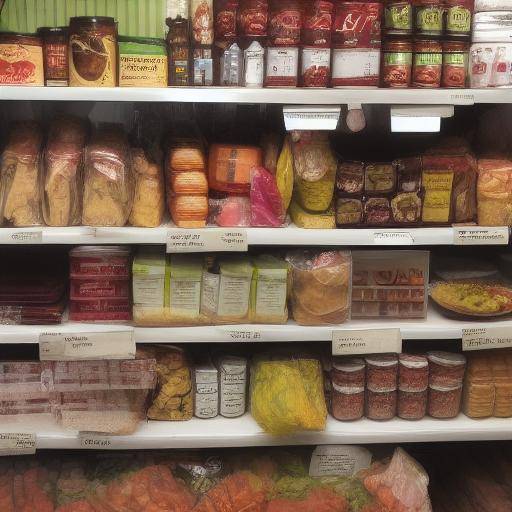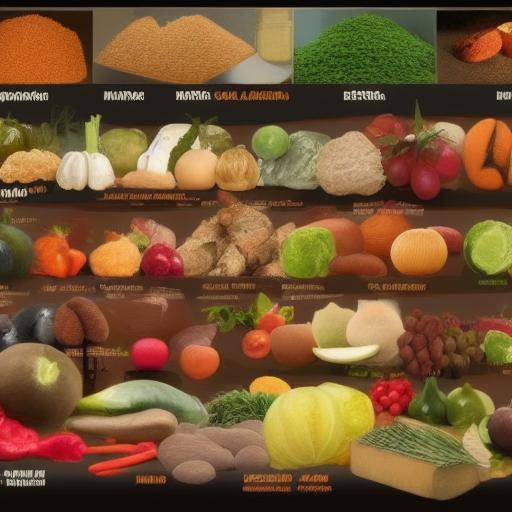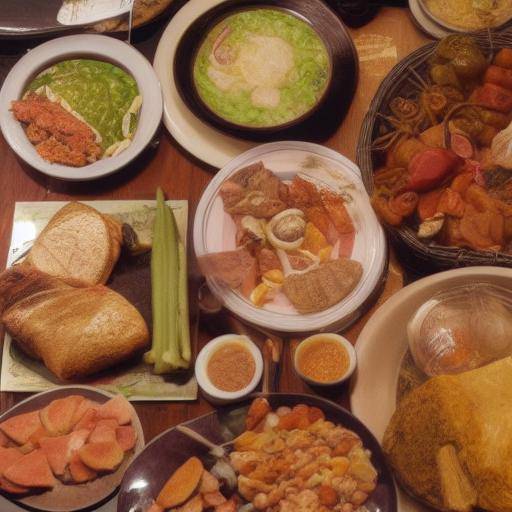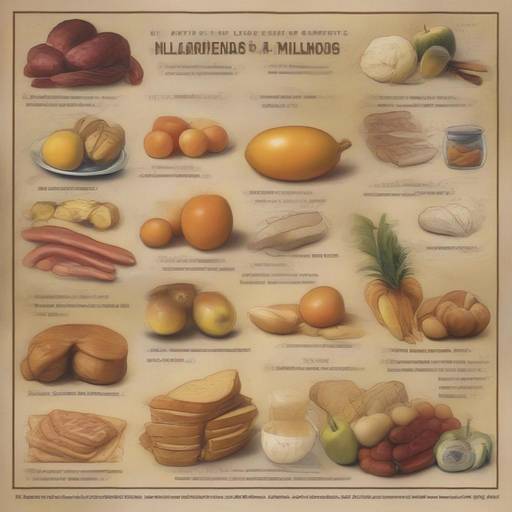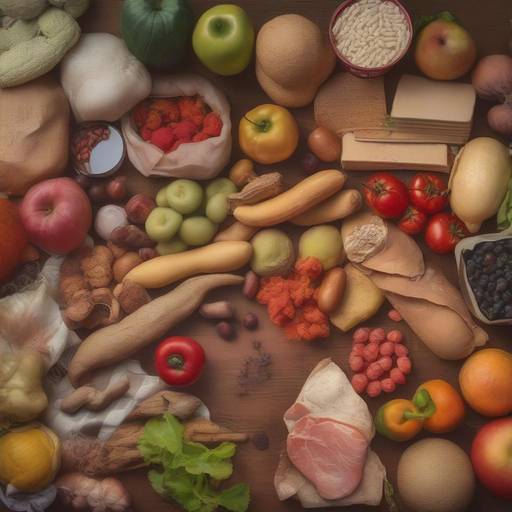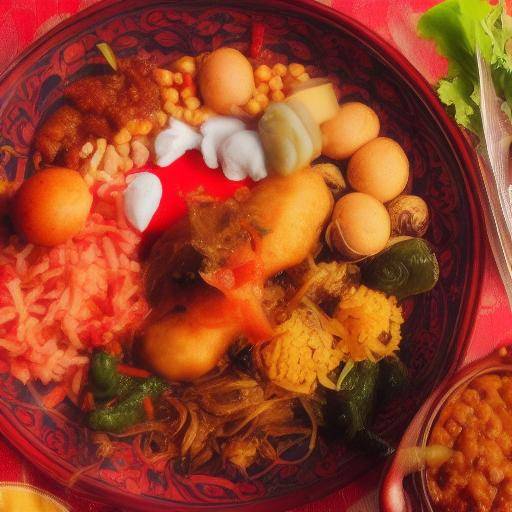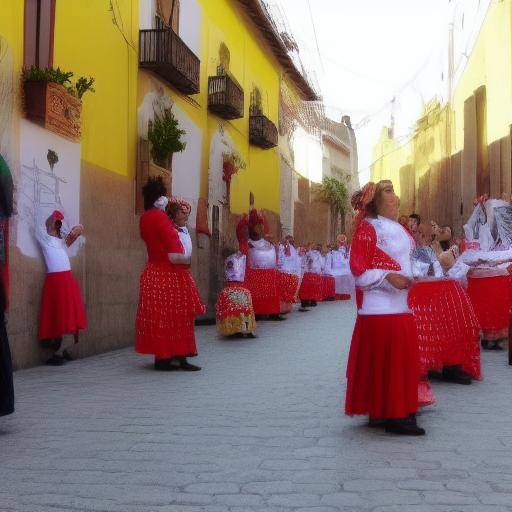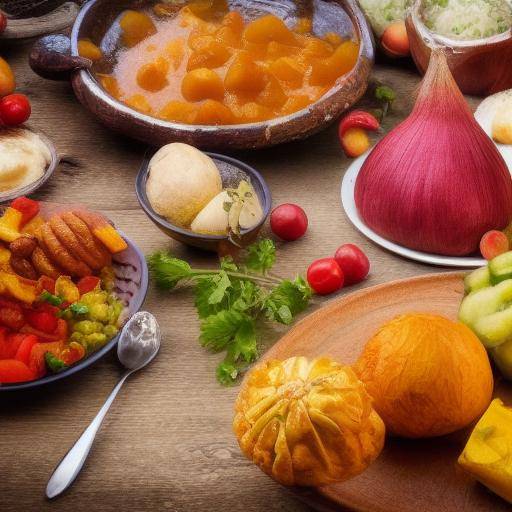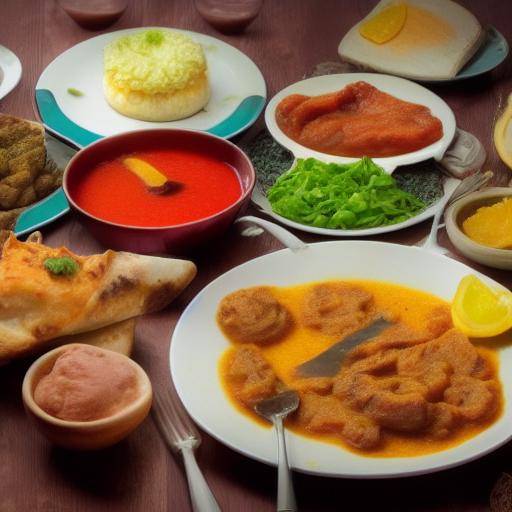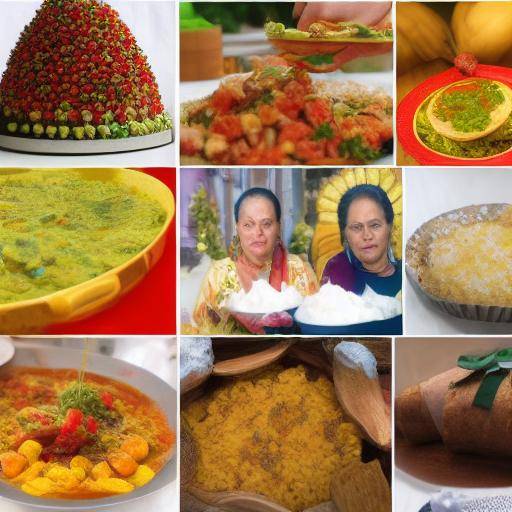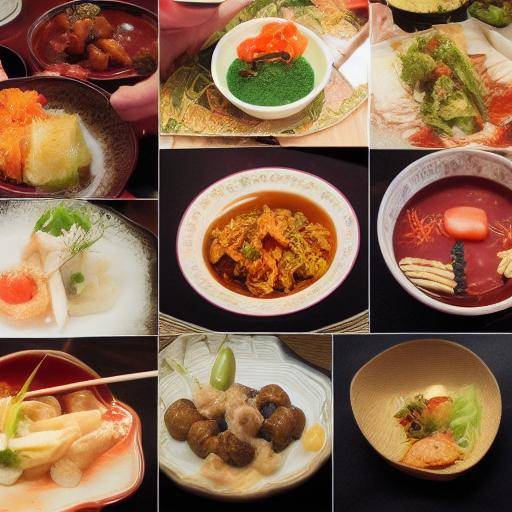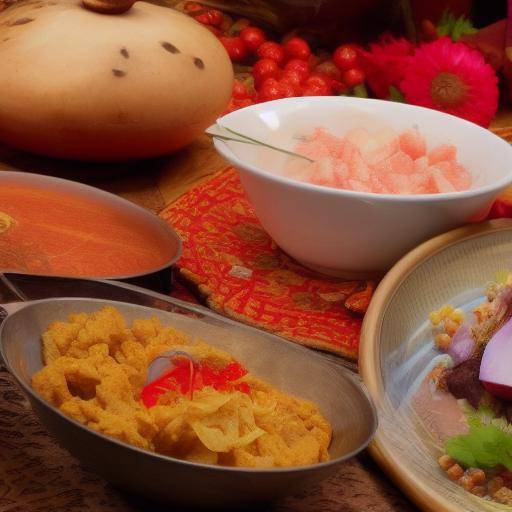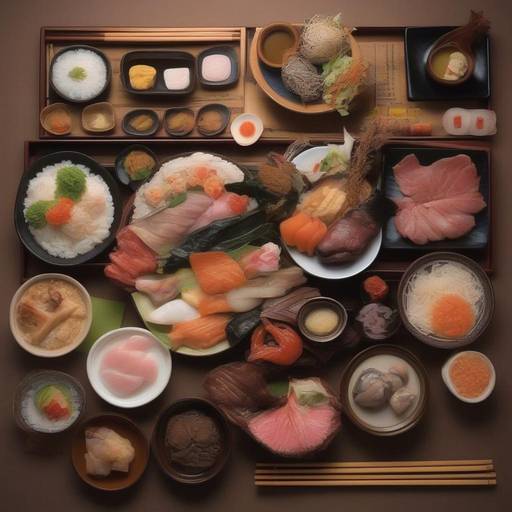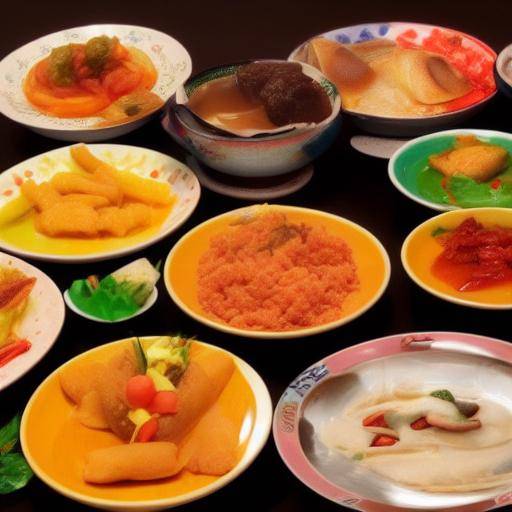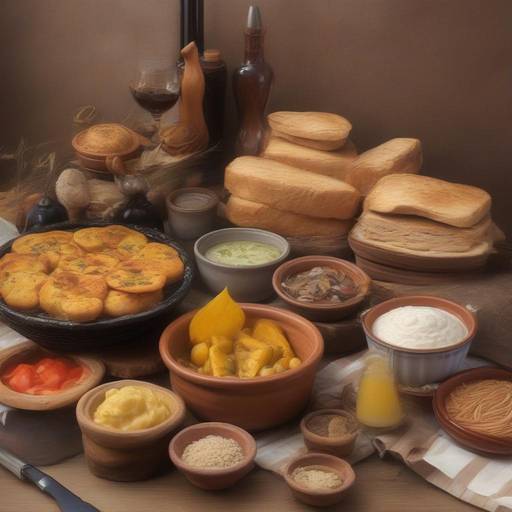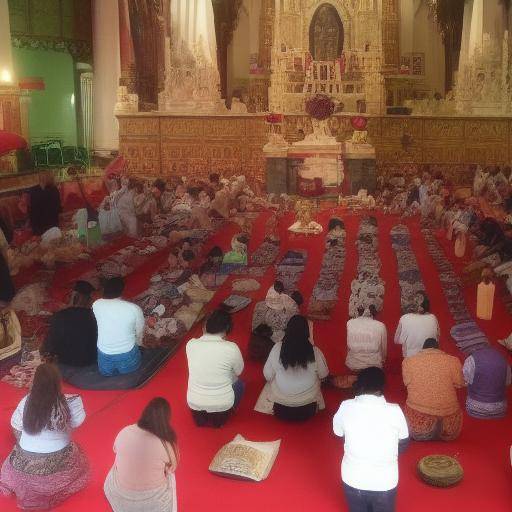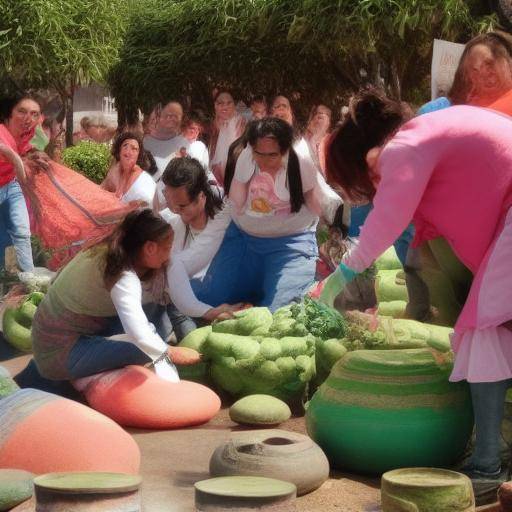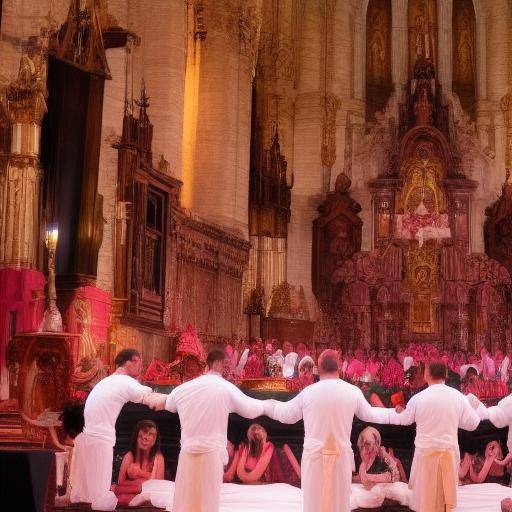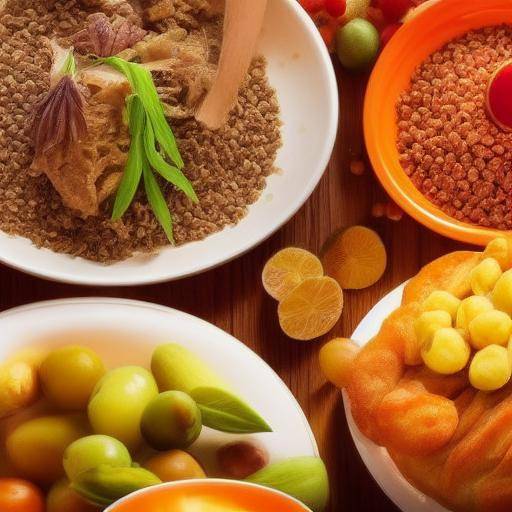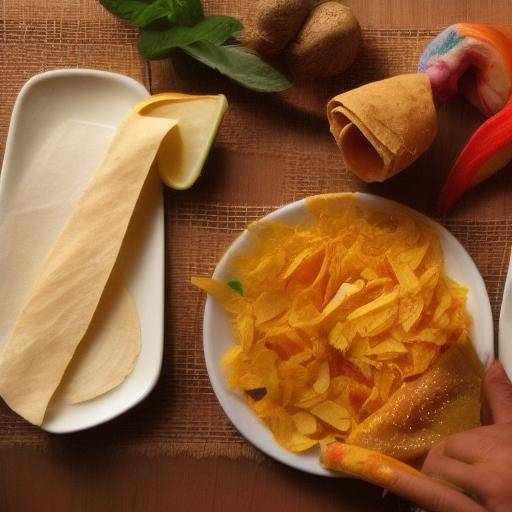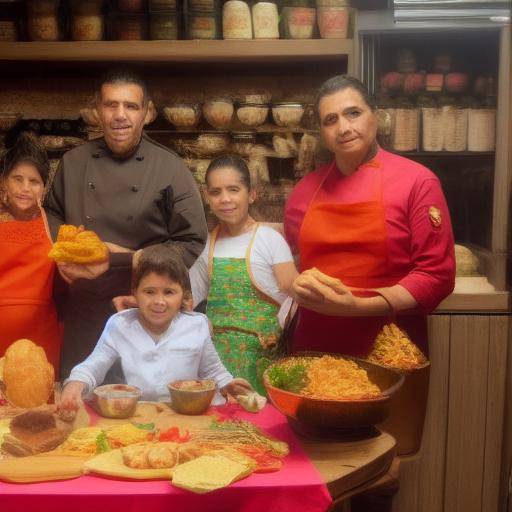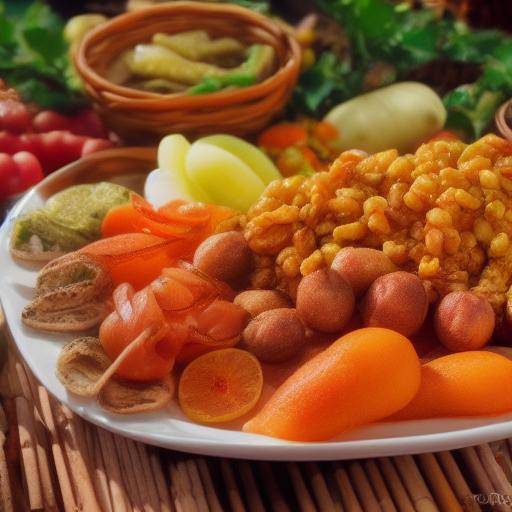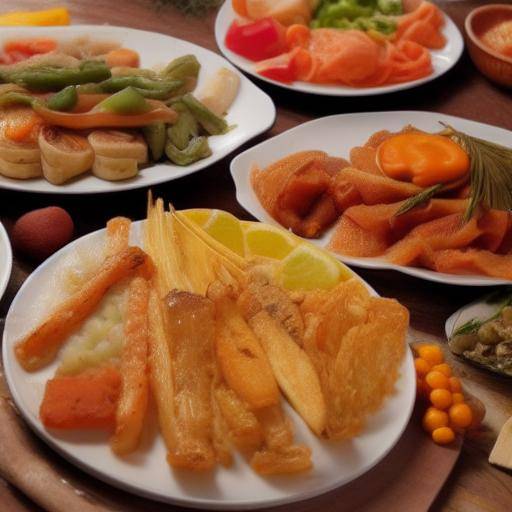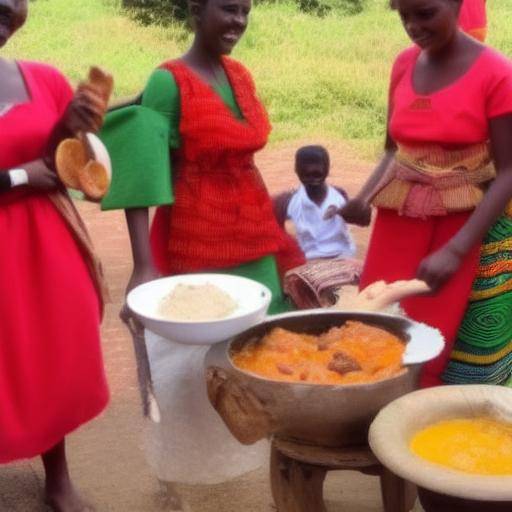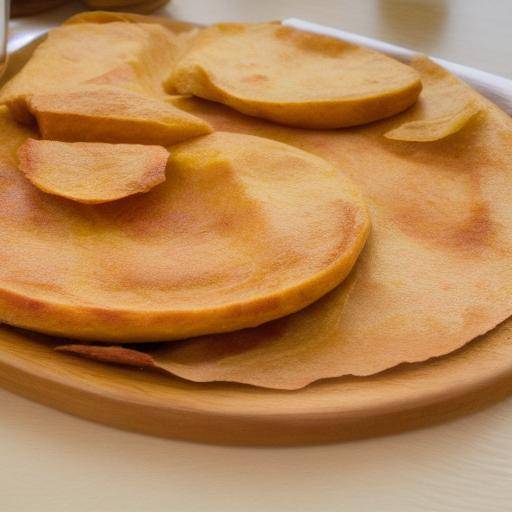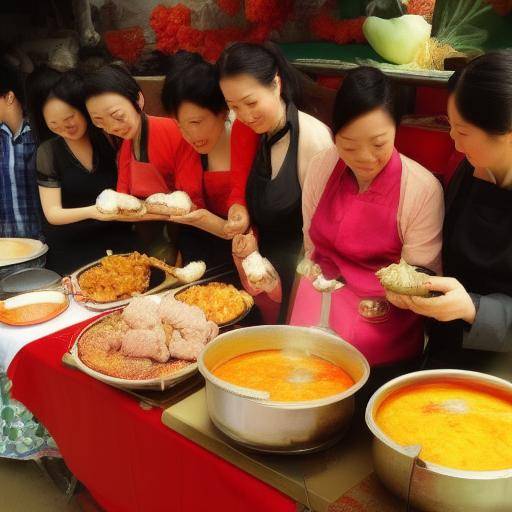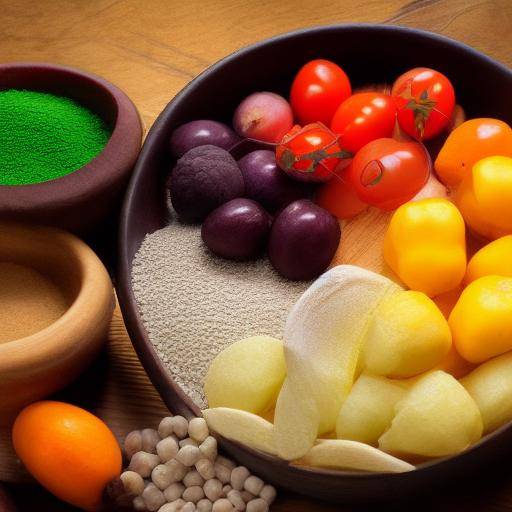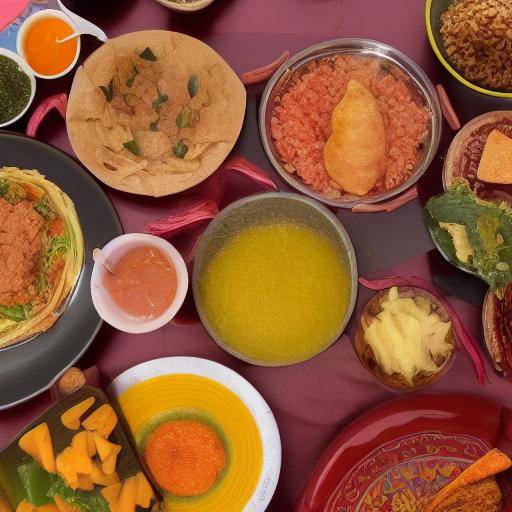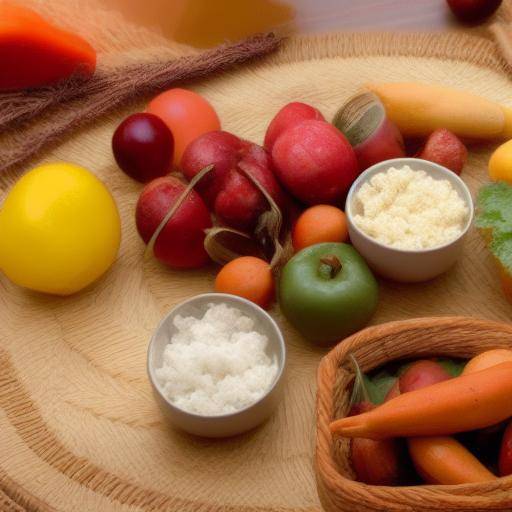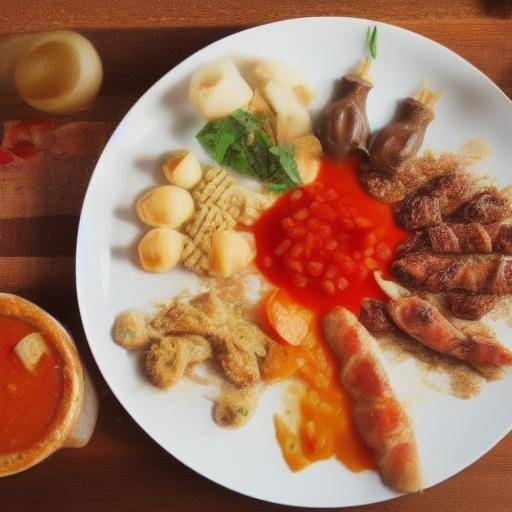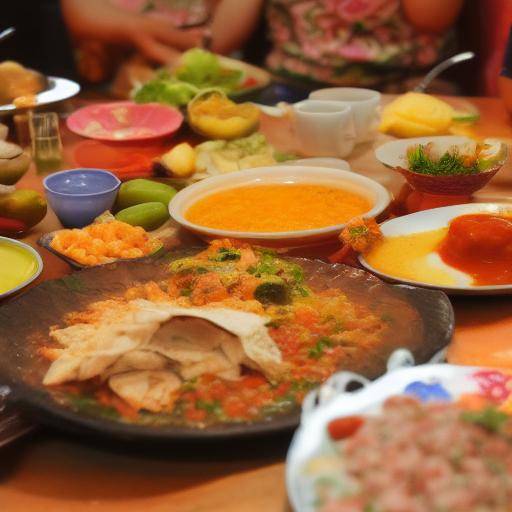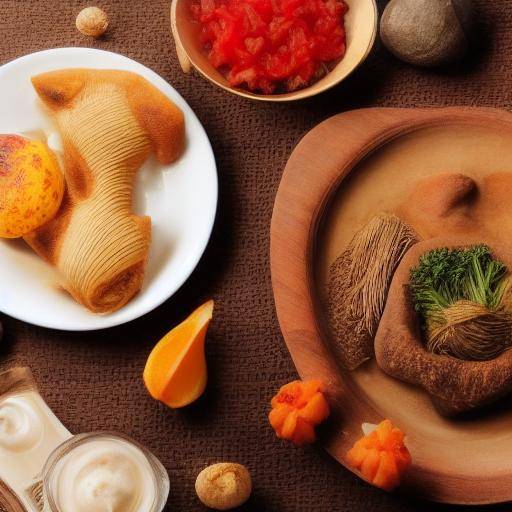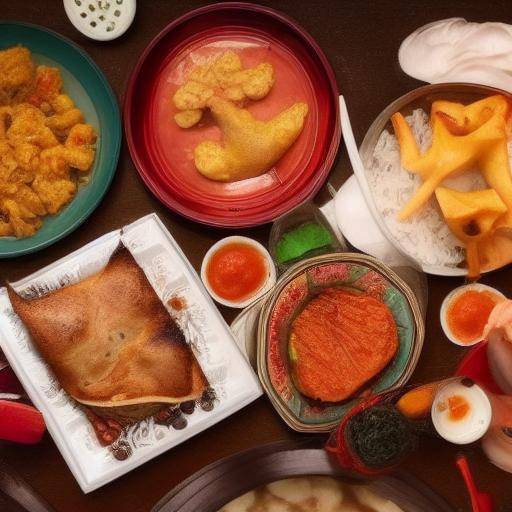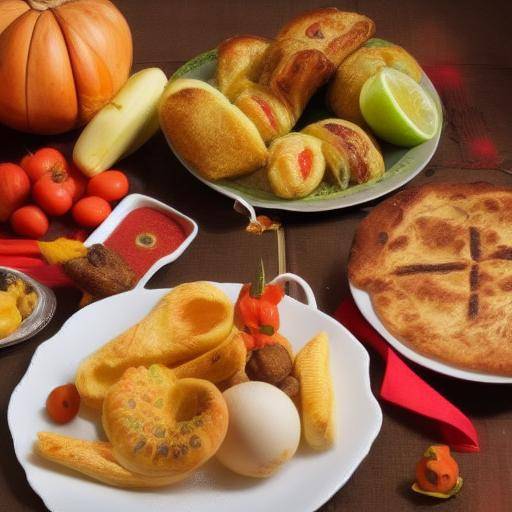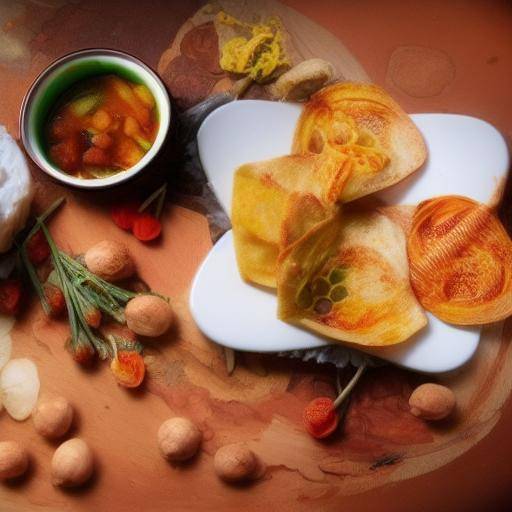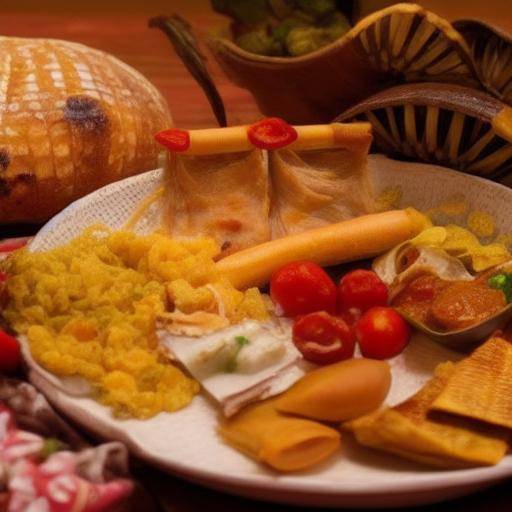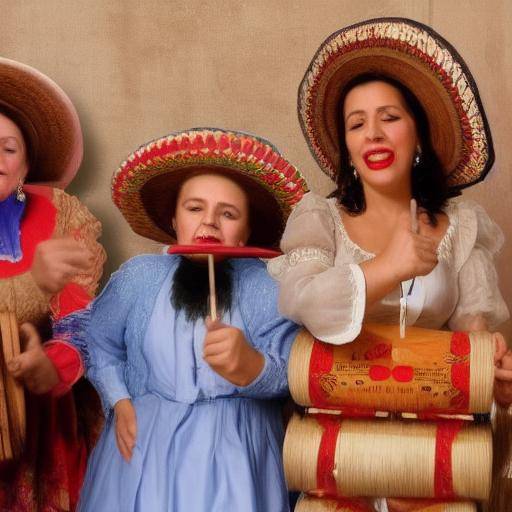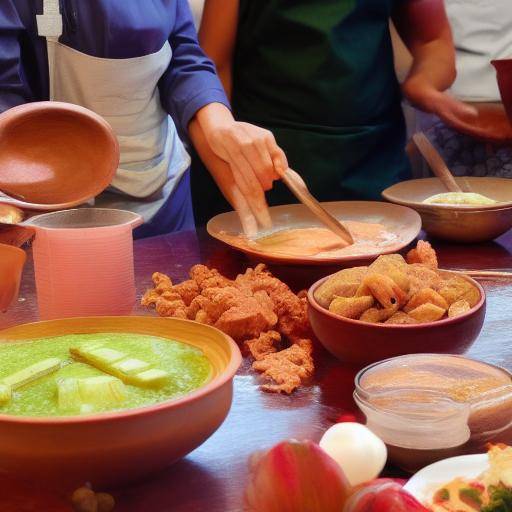
Hindu culture is known for its wealth and diversity, and its cuisine is no exception. Culinary traditions in Hindu culture are a combination of exquisite flavors, colorful ingredients and centuries-old cooking techniques. In this article, we will explore the fascinating intersection between culinary tradition, Hindu culture and food, providing a deep understanding of this rich gastronomic heritage.
Introduction
Hindu culture is one of the oldest and most vibrant in the world, and its cuisine is a reflection of this rich heritage. Culinary traditions in Hindu culture go beyond mere food preparation; they represent a combination of flavours, fragrances, and practices rooted in centuries of history and tradition. In this article, we will explore the origins, evolution, distinctive ingredients, cooking techniques, and the cultural meaning of food in Hindu culture. In addition, we will examine regional influences, gastronomic holidays, and the contemporary relevance of these traditions in a globalized world.
History and Background
The history of culinary traditions in Hindu culture dates back thousands of years, influenced by a mixture of geographical, cultural, and religious factors. The Vedas, ancient Hindu religious texts, and other classic writings offer a vision of the importance of food in Hindu culture. These texts not only detail recipes, but also prescribe ethical and spiritual norms on food intake.
The different periods of the history of India, from the Vedic era to the colonial period, have left significant traces in the evolution of Hindu cuisine. The arrival of foreign civilizations, such as Mogoles, Portuguese, and British, also influenced Indian gastronomy, giving rise to unique culinary fusions.
Analysis in Deep
Culinary traditions in Hindu culture are not only a cultural expression, but also offer various health benefits. The diversity of ingredients such as rice, legumes, spices, and herbs, combined with specific cooking methods, provides a balanced and nutritious diet. However, new challenges, such as globalization and climate change, also impact the availability of traditional ingredients and production methods.
In contemporary society, Hindu cuisine has transcended national borders, gaining popularity around the world. However, the authenticity of culinary traditions faces the challenge of adapting to changing tastes and preferences. This balance between the preservation of culinary traditions and gastronomic innovation is a key aspect to consider in the analysis of Hindu cuisine.
Comprehensive review
Hindu cuisine has gained a prominent place in the world culinary scene, and its influence extends far beyond the borders of India. The adaptation of traditional recipes to contemporary demands, together with the promotion of Indian food through gastronomic events and festivals, demonstrates the lasting impact of culinary traditions on Hindu culture.
In addition, the popularity of Indian food has generated a debate on authenticity and the reinterpretation of traditional dishes in a global context. The food industry faces the challenge of maintaining the essence of culinary traditions while adapting to the demand of the international market.
Comparative analysis
Culinary traditions in Hindu culture are distinguished by their regional and seasonal diversity. Each region of India has its own culinary specialties, influenced by geographical, climate, and cultural factors. For example, the North Indian cuisine is characterized by the use of flat breads (such as naan and roti) and a higher dependence on dairy products, while the South Indian cuisine stands out for its rice and coconut dishes as well as more spicy flavors.
In addition, religious and cultural festivities play a crucial role in the elaboration of traditional dishes, each with its own symbolism and meaning. For example, during the Diwali festival, special sweets and desserts are prepared such as the "late" and "barfi", while the Holi festival is celebrated with salty and colorful dishes known as "chaat" and "gujiya".
Practical Tips and Accessible Recommendations
For those interested in experiencing Hindu cuisine in their own kitchen, here are some practical tips:
- Familiarize yourself with a range of spices such as cumin, cilantro, turmeric, and cardamom to give flavor to your dishes.
- Experience with different cooking methods, such as the "tandoor" to grill, the "dum" to cook on a slow fire, and the "bhuna" to jump with spices.
- Learn to prepare emblematic dishes such as "biryani", "samosa", and "paneer tikka" to explore the diversity of Hindu cuisine.
Industry Visions and Expert Reviews
Recognized chefs and culinary experts have emphasized the importance of preserving culinary traditions in Hindu culture while adapting to global gastronomic evolution. According to them, the key is to find a balance between authenticity and innovation, making the most of local ingredients and creativity in the presentation of dishes.
In addition, the promotion of Hindu food at the international level has renewed interest in culinary traditions, creating opportunities for intercultural collaboration and appreciation of gastronomic diversity.
Case Studies and Real Life Applications
The renowned "Sabor of India" festival held in various cities of the world has served as a showcase for Indian culinary diversity. This event brings together chefs, food enthusiasts, and Hindu culture enthusiasts to celebrate the richness of Indian cuisine, highlighting the importance of preserving and disseminating culinary traditions.
In addition, high cuisine restaurants have integrated traditional Indian dishes with a contemporary touch, highlighting the versatility and adaptability of classic recipes in the modern era.
Future Trends and Predictions
As Indian food continues to gain popularity at the global level, culinary traditions in Hindu culture are expected to remain a source of inspiration for gastronomy lovers. Demand for authenticity, sustainability and transparency in food production is expected to influence the preservation of culinary traditions, promoting the expansion of traditional ingredients and culinary techniques in contemporary scenarios.
Conclusions and FAQs
In conclusion, culinary traditions in Hindu culture are a testimony to the rich gastronomic heritage that has evolved over millennia. From traditional cooking techniques to the diversity of ingredients, food in Hindu culture remains a beacon of cultural identity and an inexhaustible source of inspiration for global cuisine.
Frequently asked questions
What are some emblematic dishes of Hindu cuisine?
Plates like "biryani", "butter chicken", "masala dosa", and "gulab jamun" are outstanding examples of India's rich culinary variety.
How are Hindu culinary traditions influenced by dietary restrictions?
Hindu culinary traditions offer a variety of vegetarian and vegan dishes that reflect the influence of religion and dietary preferences in the kitchen.
What are some of the foreign influences in Hindu cuisine?
Hindu cuisine has been influenced by foreign civilizations such as Mogoles, Portuguese, and British, which has led to the incorporation of distinctive ingredients and culinary techniques.
How does religion influence Hindu culinary traditions?
Religion plays a fundamental role in Hindu culinary traditions, including dietary restrictions such as vegetarianism, as well as culinary practices associated with festivities and religious events.
What is the role of spices in Hindu cuisine?
The spices play a crucial role in Indian cuisine, not only to taste the dishes, but also for their medicinal properties, creating a symphony of unique flavors and aromas.
How does Hindu cuisine adapt to contemporary demands?
Hindu cuisine has experienced an evolution to adapt to contemporary demands, integrating local ingredients and modern presentation techniques without losing the essence of culinary traditions.
What holidays in India are strongly associated with food and cooking?
Holidays such as Diwali, Holi, and Raksha Bandhan are intrinsically linked to specific dishes and sweets, which reflect the cultural meaning and celebration through food.
What regions of India stand out for their distinctive culinary traditions?
North India is distinguished by its focus on bread- and dairy dishes, while South India is known for its emphasis on rice, coconut, and more spicy flavors.
This has been an enriching exploration of culinary traditions in Hindu culture. The richness, diversity and cultural significance of Hindu cuisine continue to fascinate and delight people around the world, ensuring that these culinary traditions are perpetuated over time and remain an invaluable legacy of Hindu culture.

